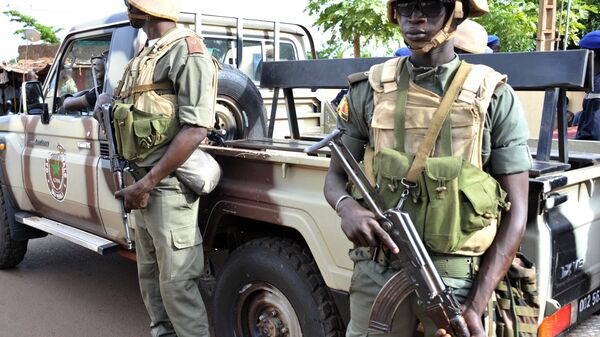The Mali military mutiny began at the garrison town of Kati, about 15 km northwest of Bamako, on Tuesday morning at about 8 am, with locals reporting soldiers firing their guns into the air, and armoured vehicles and tanks seen moving through the streets while local commanders were detained.
Apparently a military coup is underway in #Mali at Kati city, near the capital of #Bamako by #Turkish-backed soldiers. pic.twitter.com/hh5C3t8TaX
— Simulation Warlord🇺🇸 (@zerosum24) August 18, 2020
The mutiny is thought to have been motivated by soldiers’ financial grievances, with troops seizing a munitions depot.
The Kati military base is one of the largest in the country of 19 million, and includes a military hospital, and military academy where students are provided military training in addition to a basic education.
Local media say Tuesday’s mutiny was started by a group of four military officers, said to include Col. Mama Sekou Lelenta, colonels Diaw and Camara, and Gen. Cheick Fanta Mady Dembele.
#Mali : according to new information the ongoing mutiny in #Bamako is directed by four officers: Colonel Diaw General Cheick Fanta Mady Dembélé, and Colonel Mama Sekou Lelenta. #Bamako https://t.co/iwCwFzRW3l
— Yellow (@Yellow34950210) August 18, 2020
The Kati base has played a role in Malian politics before, and was the epicenter of the 2012 mutiny which led to the overthrow of former President Amadou Toumani Toure. In that coup, the military protested against Toure’s handling of the 2012 insurgency in the country’s north, including the lack of supplies to troops fighting Tuareg rebels in the country’s north.
According to reports, President Ibrahim Boubacar Keita and Prime Minister Soumeylou Boubeye Maiga, who were detained during Tuesday’s unrest, have now been taken to the Kati camp.
URGENT – #Mali: Former President IBK is in the #Kati camp, Soundjata brought by soldiers loyal to Colonel Diaw, the new leader of the country.#OSINT #Military pic.twitter.com/Y56EjBcMz1
— ISCResearch (@ISCResearch) August 18, 2020
Tuesday’s unrest, which also saw the detention of other government officials and officers, comes in the wake of weeks of protests starting June 5, when opposition forces critical of President Keita’s alleged failure to deal with corruption and restore order in the country amid escalating jihadist and inter-communal violence took to the streets. The protests led to clashes between protesters and security forces between July 11-12, will 11 people killed, and over 120 others injured.




